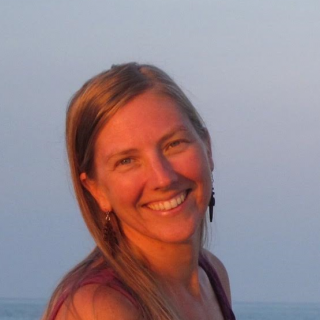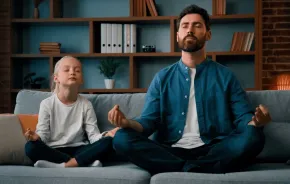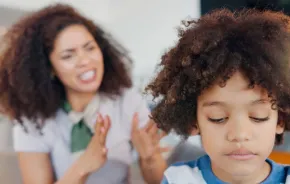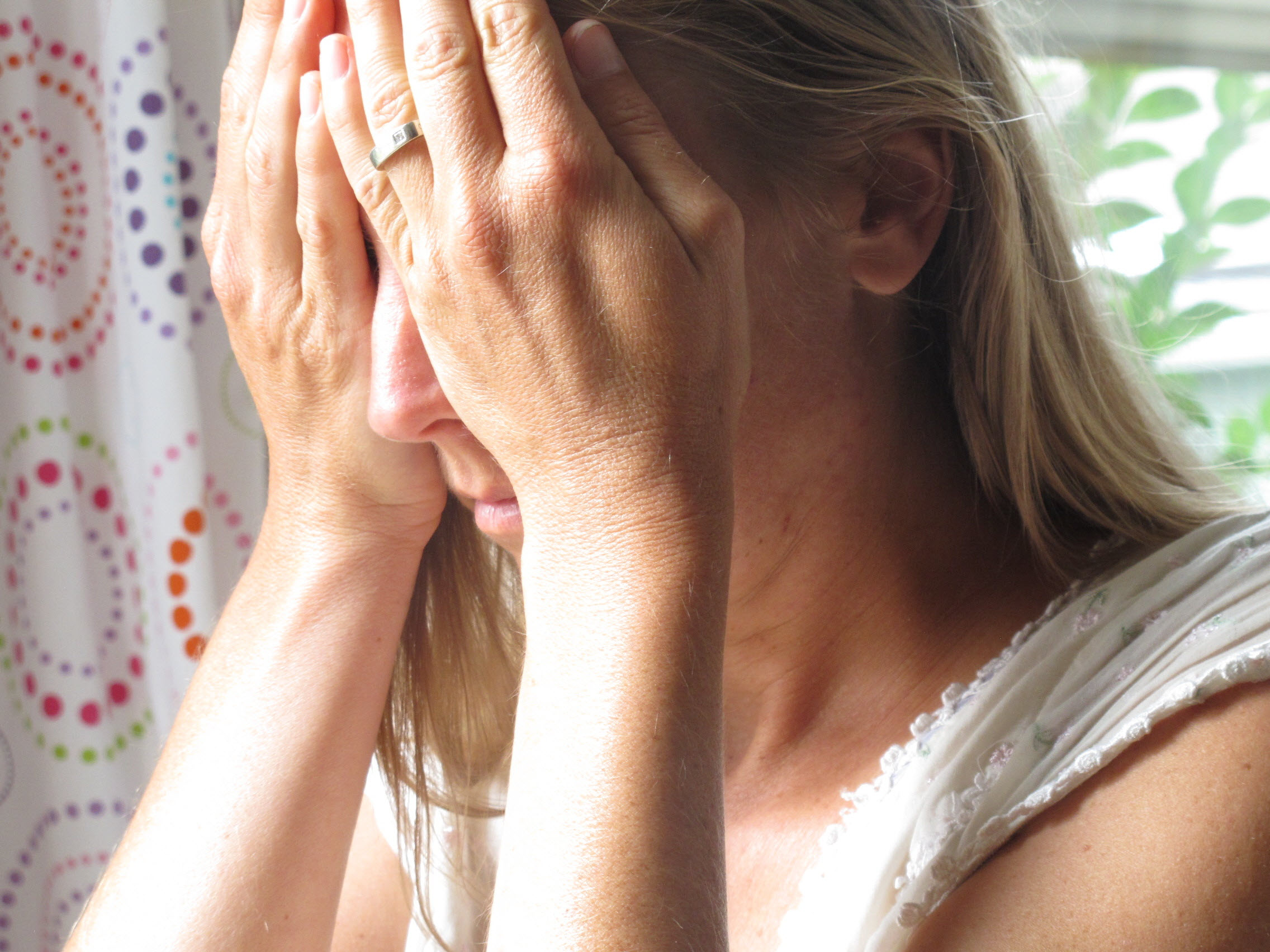
It was February three years ago. I had been in a funk all morning. Actually I had been in a funk all month. It was time to get out of the house and out of my head. As I descended the stairs of our front porch with my son and daughter, a light mist settled on my face. The familiar scent of wet trees was in the air. I inhaled deeply.
I wish I could say being outside revived me, but it didn’t. Like the concrete sidewalk below my feet, I felt cold, hardened, one-dimensional and flat. Each slab of gray reflected the pewter sky above. The kids had been up since 5:30 a.m. and the light hadn’t changed since the sun rose at 7:30 a.m. My anger hovered like the cloud layer above.
Getting out the door had seemed like an impossible feat. Bundling my 2-year-old son in layers of wool and fleece was like coating slices of chicken in flour, egg and breadcrumbs, except that he was much slippier. Now that we were finally on our way and he sidled up close to me, I was able to slip the final layer over his head: a thin red hood. His cheeks were poking through the opening, making what was already cute into adorably delicious. I kissed his face. He peered up at me innocently and I wondered if my sweet-faced cherub could see all the anger and guilt I felt.
We passed under a towering conifer. Looking up at the spiral of branches, I remembered watching it from our bedroom window in the wee hours of the night when I was struggling to breastfeed my then-newborn son. I worked so hard to keep him alive, watching that tree with its outstretched branches swaying wildly. At the memory, I grasped my son’s hand tighter. He was now an active, talkative toddler. I had weaned him just a few weeks earlier. The two years of nursing him — the same length of time I'd nursed his sister — had felt like forever. I was ready to be done. Or was I?
The great boughs above began to billow and ripple as a gust of wind whipped up the street. I pulled my hat down over my ears and buried my chin into my furry scarf. I feel like crap, I thought as I watched my daughter darting down the sidewalk. I should be able to handle this better.
I was walking a fine line between scary thoughts and devastating fantasies that could become reality. I knew was in dangerous territory, but the idea of disappearing was so seductive.
“Mama, hold this,” my son said holding out a bouquet of sticks. I grabbed them as he ran ahead to keep up with his sister. I need to feel better. A woman jogged by behind her stroller. I should go to a therapist. She flashed me a smile. I tried to smile back with an expression that wasn’t forced. It didn’t work.
I was a woman constantly holding her breath, as if she were at the edge of a perpetual high dive. The fear and discomfort never went away. I waited silently, toes peeking over the edge, about to fall into another day hoping it was better than the last.
Over the past month, I had been experiencing regular waves of anxiety that kept me up in the wee hours, sometimes for many nights in a row. Every thought hurt and every relationship felt troubled. My feelings of disconnect from my kids and my husband were so strong that I truly believed I was a terrible mother and partner, which only increased my growing sense of loneliness and isolation. Apathy crept in slowly as well as a strong urge to leave this life. Flashes of a long late-night swim, a suicide plan, snuck in. I was walking a fine line between scary thoughts and devastating fantasies that could become reality. I knew I was in dangerous territory, but the idea of disappearing was so seductive.
“I can see the park!” hollered my daughter, jolting me from my perilous reverie.
“I’m too tired to walk anymore,” said my son as he lifted his arms to the sky and locked eyes with me, the ubiquitous sign for "pick me up." I gathered him into my arms and swung him onto my back. Walking with my boy’s warm breath against my neck and his soft belly against my back brought me fully back to reality. I knew I‘d never end my life, but the feeling of wanting to surfaced a lot. What is wrong with me?
We climbed a grassy hill and my son wiggled to get free. Both kids ran down the other side before flopping to the ground, landing right in a patch of daffodil sprouts. Right on time, I thought. It always surprises me how two weeks after New Year’s, they sneek through the ground and somehow thrive. How I wanted to thrive too.
Above the rushing drone of nearby traffic came a loud bird call.
“What was that?” asked my daughter.
“Mama, that was loud!” said my son.
We heard the squawking sound again and I identified the bird call by its eerie resemblance to a woman’s voice. I listened closely, envisioning one of the big blue iridescent feathered birds perched near the entrance to the neighboring zoo. I heard it again.
“It’s a peacock,” I said, thinking how much the bird’s cry sounded like a woman screaming for help.
Every day became a very bad day. It felt like the description of post-partum depression, which confused me. I had given birth more than two years ago.
I didn’t know it at the time, but I was in the midst of post-weaning depression (PWD), a common side effect of stopping breastfeeding. Breastfeeding stimulates the production of oxytocin, a.k.a “the love hormone,” and with the sudden drop of this feel-good hormone, many women experience clinical depression as they wean.
With my first child, I weaned her over a period of three months. After two years of breastfeeding I slowly took away our sessions one-by-one. When I weaned my son a few years later, it was much more abrupt. After months of illness and mastitis, I needed to conserve my energy and heal.
“Honey,” I told him one day, “we’re going to stop nursing and Mama is gong to snuggle you as much as you want.”
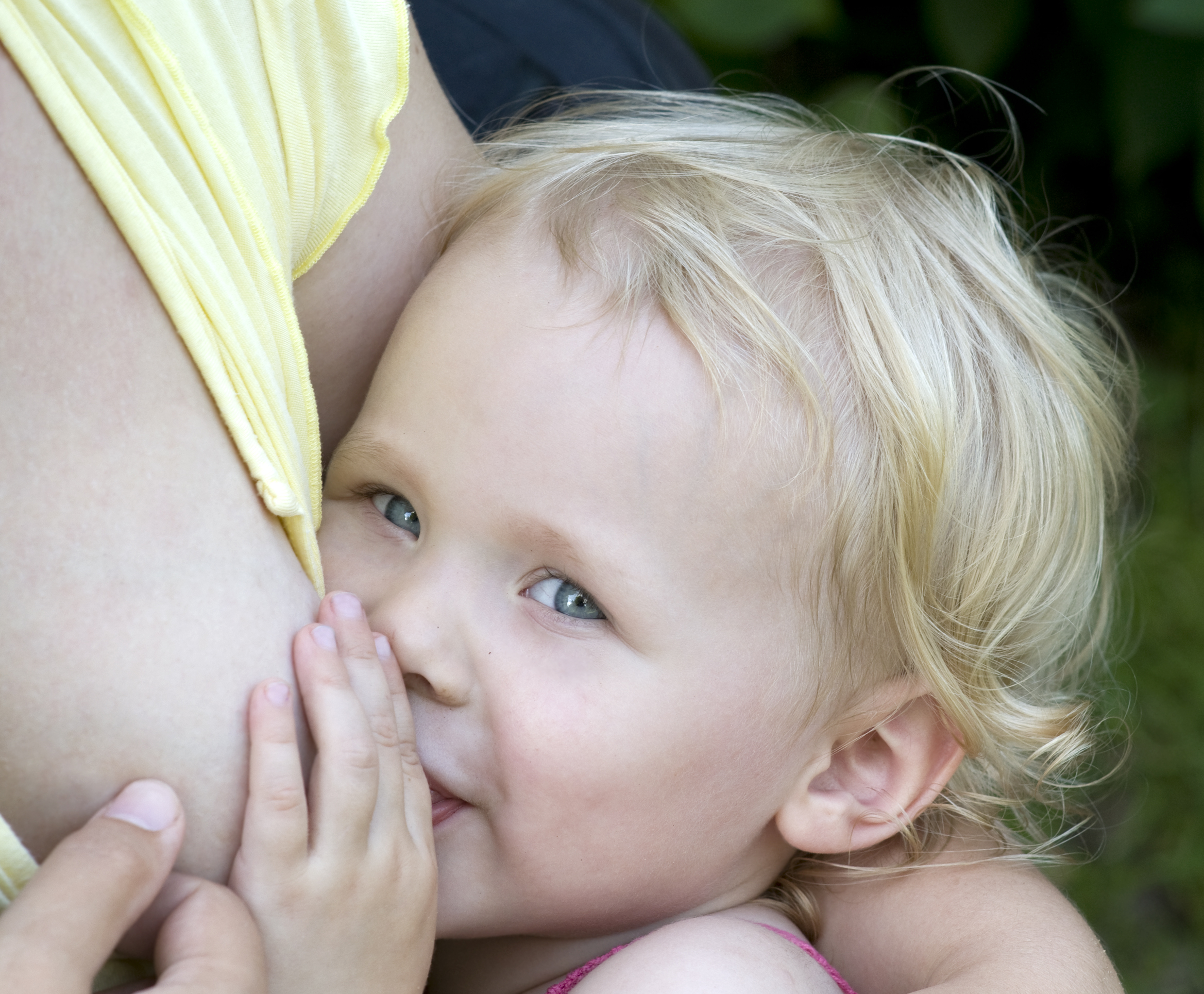 “OK,” said my pudgy little guy, leaning in for a hug and a kiss. Then he was off. And he didn’t ask to nurse for the rest of the day or the day after that. Suddenly, something I felt would take months was over.
“OK,” said my pudgy little guy, leaning in for a hug and a kiss. Then he was off. And he didn’t ask to nurse for the rest of the day or the day after that. Suddenly, something I felt would take months was over.
I was sad, but pleased the change went so smoothly. Then, within a few weeks, I started to feel a sinking feeling similar to PMS but it never passed. Every day became a very bad day. It felt like the description of post-partum depression, which confused me. I had given birth more than two years ago.
The link between lactation and mood is not fully understood. What is known is that PWD is less common among mothers who stop breastfeeding when they’re ready and more common among those forced to wean perhaps because of a job or low milk supply.
If you have a history of depression or PMS, post-weaning depression can hit pretty hard. This mom felt rejected after her nursling self-weaned. She wondered, “Why doesn’t my baby want me anymore?” She ached for those good feelings she had while nursing. “Please nurse! Please!” she pleaded.
I was depressed for six months and thought I was alone. It was awful. Similar to the mom in this post, I believed I was at fault, that my life was a mess. I followed the advice often given for depression: Reach out, talk to someone, get more rest, more exercise, more healthy food. Some of it worked, especially talk therapy, couples counseling and using my blog as a creative outlet.
Like many unknown and understudied aspects of mothering, no one’s talking about PWD, but it affects millions. It can sneak up on women with devastating effects and feels like hell. Take solace in knowing that it will pass with help, that it’s not your fault and, most importantly, that you’re not alone.




